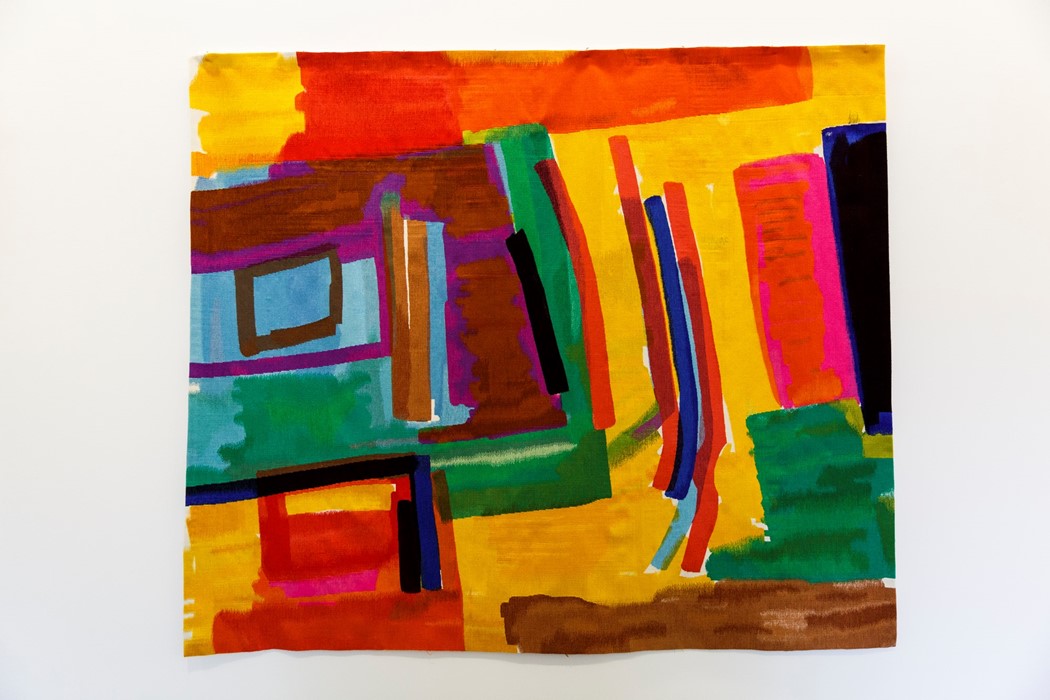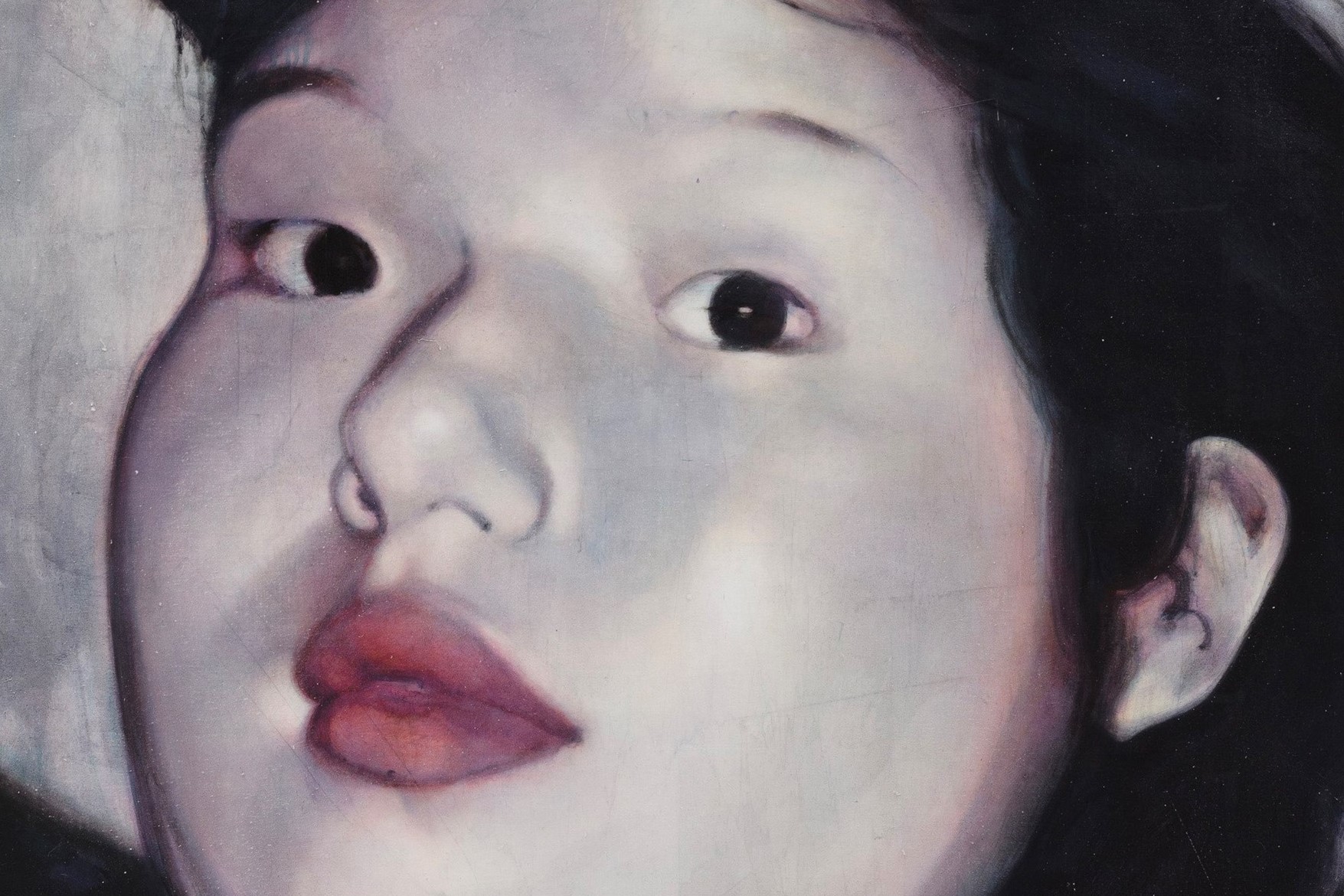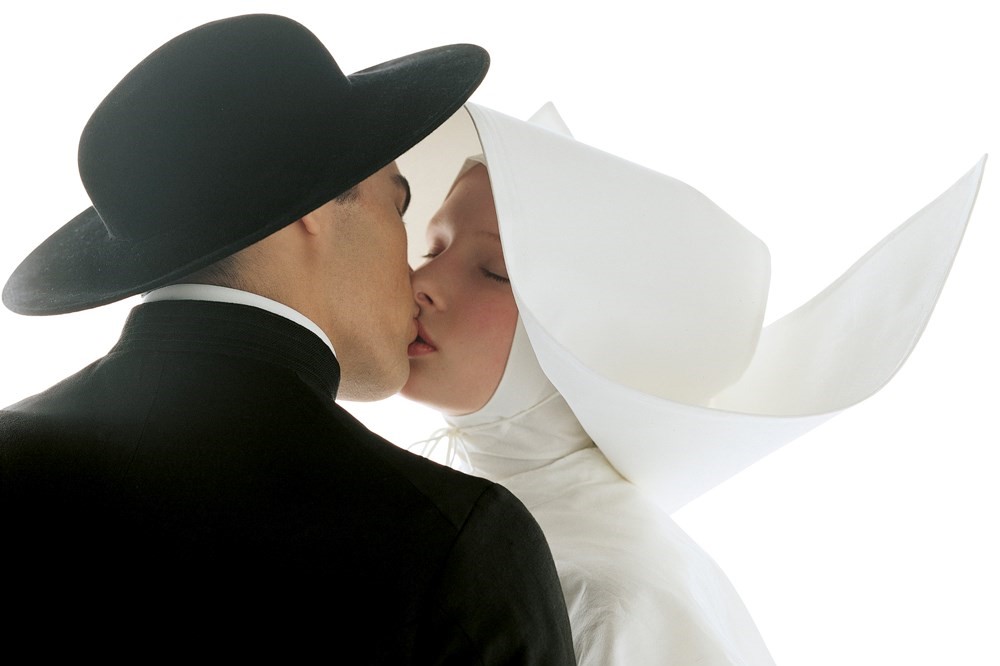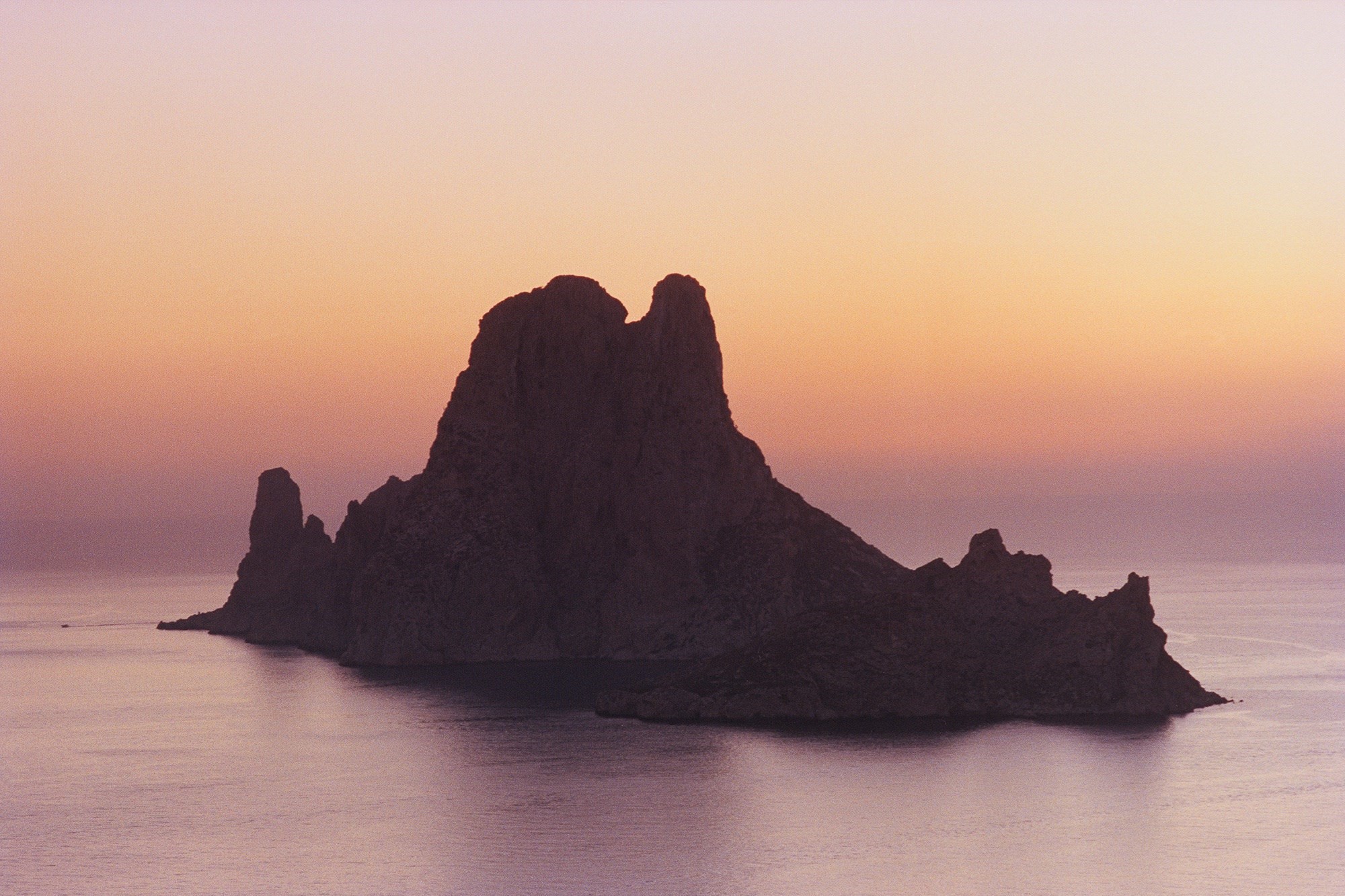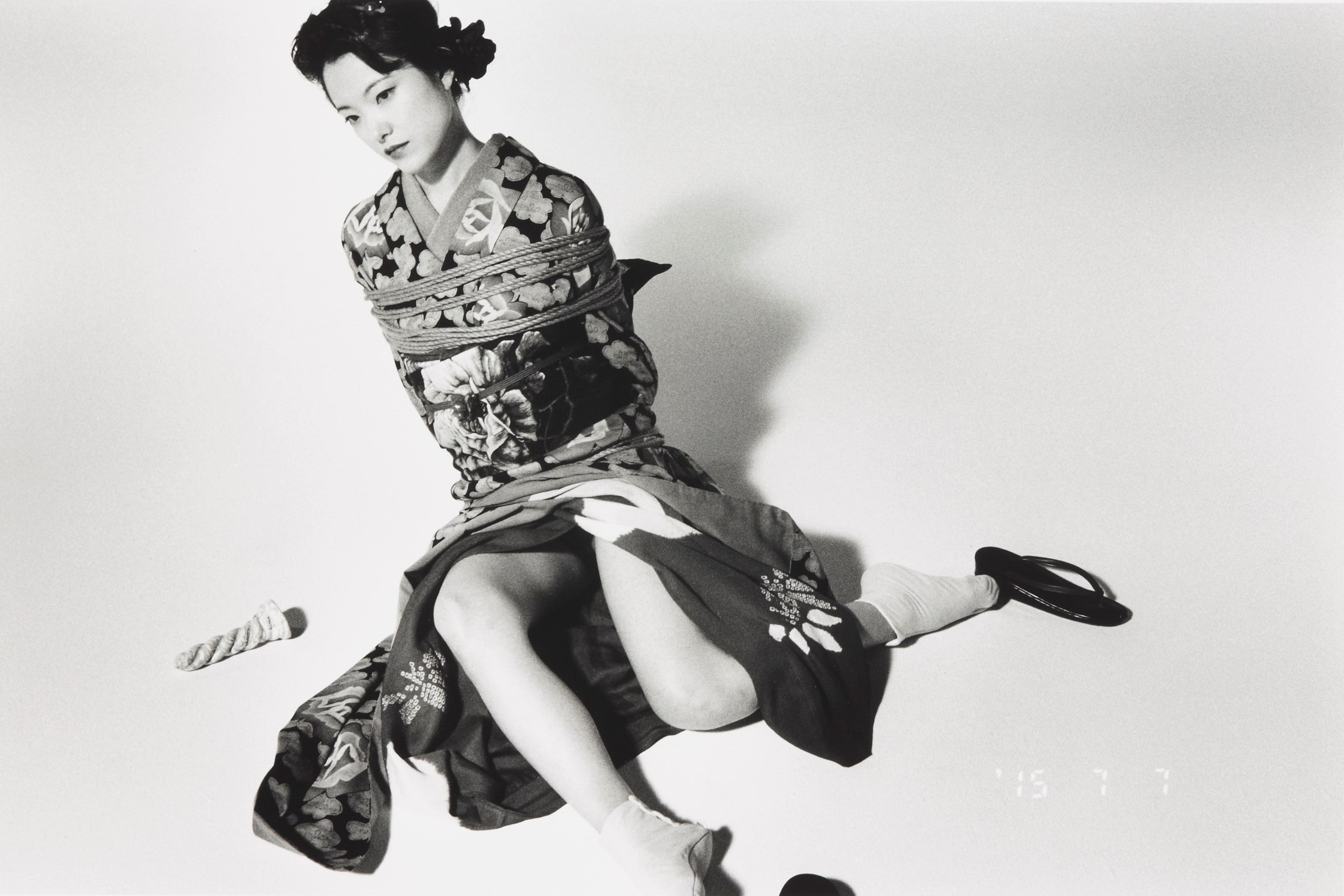Poet, essayist and prolific painter – Adnan first gained notoriety for her multi-hyphenate practice during her 80s. Now, aged 91, she presents a new body of work at London's Serpentine Sackler Gallery
Who?
Born in Beirut in 1925, Etel Adnan is a poet, essayist and painter – widely considered to be a creative force of nature. A nomad by birth, her mother was Greek and her father, a high-ranking Ottoman officer, was born in Damascus. The two communicated in Turkish, a language native to neither before moving to Beirut in the newly created Lebanon to live by the sea. A multi-linguist, Adnan spoke Greek and Turkish at home, Arabic on the street, while she spent the formative years of her education attending French schools where she was taught "that Paris was the centre of the universe". With this in mind, it seems natural that she should attend the Sorbonne [a theological college of the University of Paris] before traversing the globe, taking in Berkley and Harvard in a life that absorbed the grand finale of world’s empires, political upheaval and euphoria, and frequent periods of exile both voluntary and otherwise.
Adnan wrote her first poems in French at the age of twenty, in ode to the sun and the sea. The advent of the Algerian War in 1954 saw a refusal of the language of the coloniser in protest at French cruelty and Adnan turned instead to the visual arts where she has said that she paints in Arabic, fantastically colourful abstracts, as "a painter of place". Several years later, the abhorrent and widely televised conflicts in Vietnam prompted her to return poetry when she became, in her own words, "an American poet, writing in opposition to Vietnam".
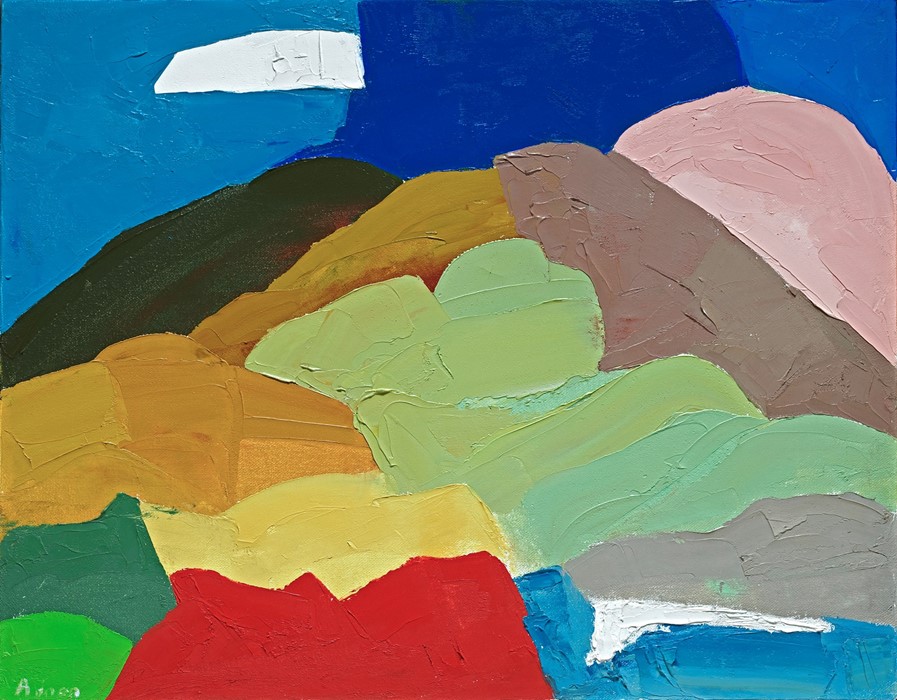
What?
If there is a ‘holy trinity’ in the work of Etel Adnan it is surely love, and war and poetry, the concerns of the heart that consumed her life and are the subject of her almost a dozen books. Hans-Ulrich Obrist has said of Adnan that "her work is the opposite of cynicism. It is pure oxygen in a world full of wars", and this is perhaps evidenced most directly in her small and bountifully bright oil paintings of Mount Tampalais in California, "my best friend", which she painted over the course of her three-decade-long American residence. Located close to the home she shared with her partner, the sculptor and publisher Simone Fattal, Adnan drew the mountain incessantly, finding in it both grounding and inspiration. A spiritual connection to colour and indebtedness to the native Americans with whom she forged a deep and lasting connection, it is in Adnan’s Californian works that she created "the confrontation between what’s coming and what you are", realised so spectacularly in the brightest pinks and deepest of reds.
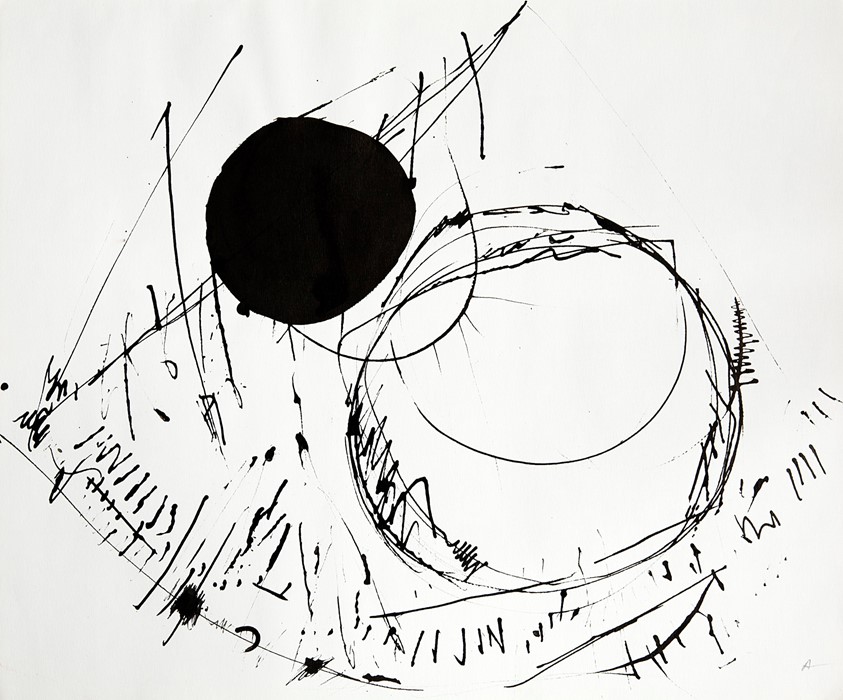
Why?
Now, at the grand age of 91, Adnan's immense body of work has gone on display at London's Serpentine Sackler Gallery – her very first solo show in the UK. As one might expect, her poetry and visual works are present throughout in both painting and tapestry form, but there is also the unique fusion of the two in her leporello: accordion folded notebooks that Adnan has used throughout her career. Fattal explains that "the leporello are so understated, quiet, but so powerful when you unfold them. A bit like Etel – they reveal themselves bit by bit." The leporello on show feature a number of poems translated by contemporary Arab poets, accompanied by drawings and expressive blocks of colour, further demonstrating her commitment to communicating in multifarious mediums.
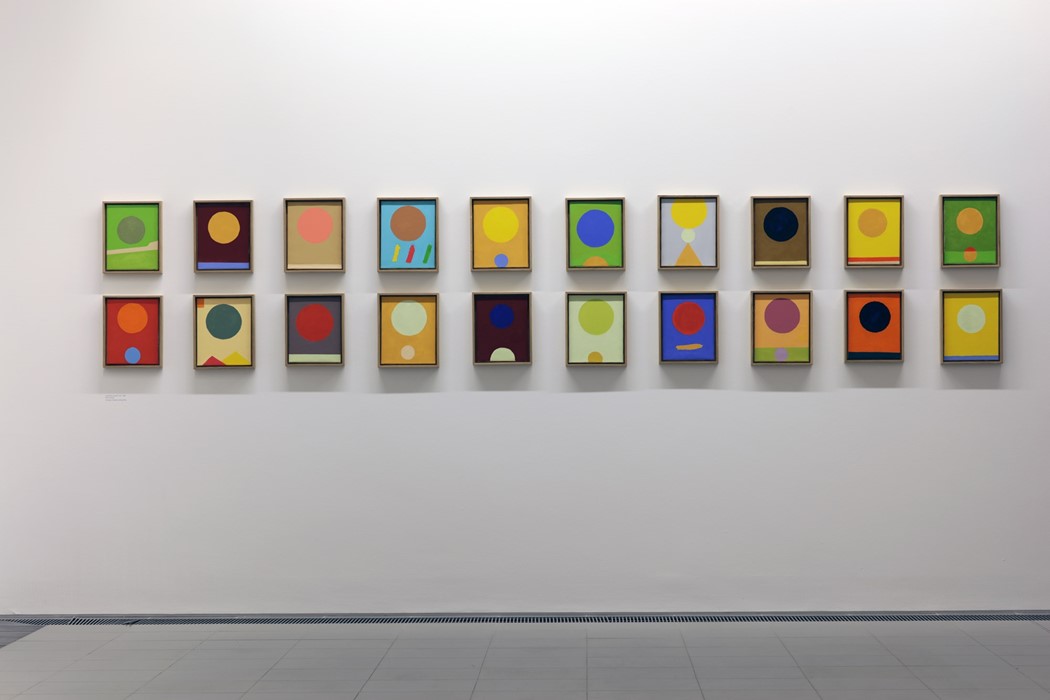
With talk of retiring from painting on the horizon – "it is as if I cannot see colour anymore" – this summer’s show provides the perfect opportunity to absorb Adnan’s chromatic spirituality and her profound beauty in the written word. She also returns to the tension between colour and form in twenty exciting new works entitled, The Weight of the World, created especially for the exhibition.
Etel Adnan: The Weight of the World runs at the Serpentine Sackler Gallery in London until September 11, 2016.
